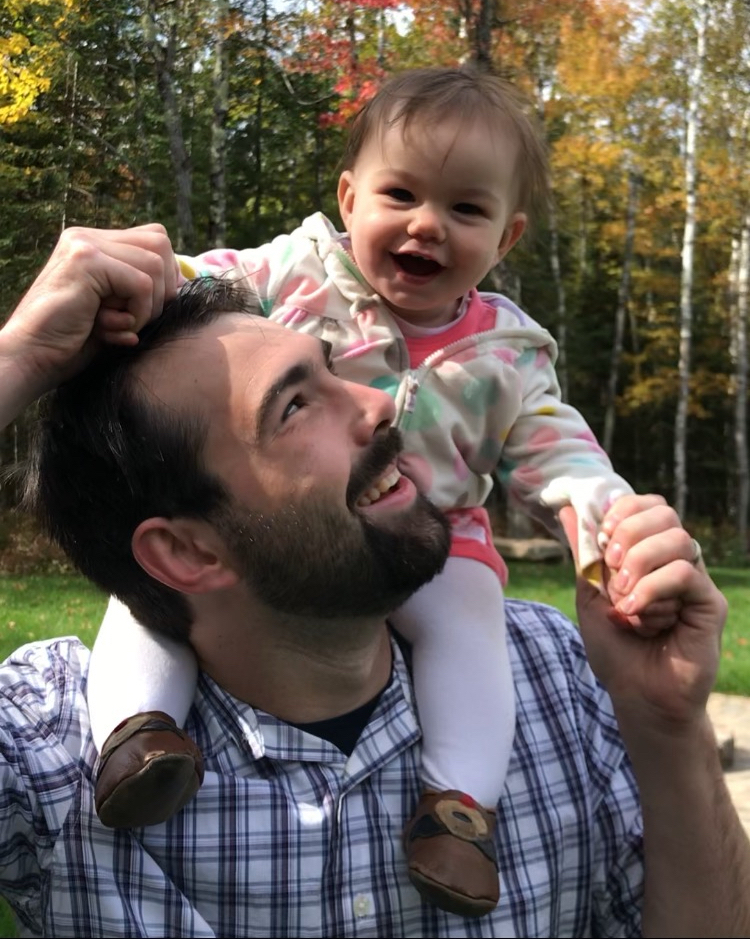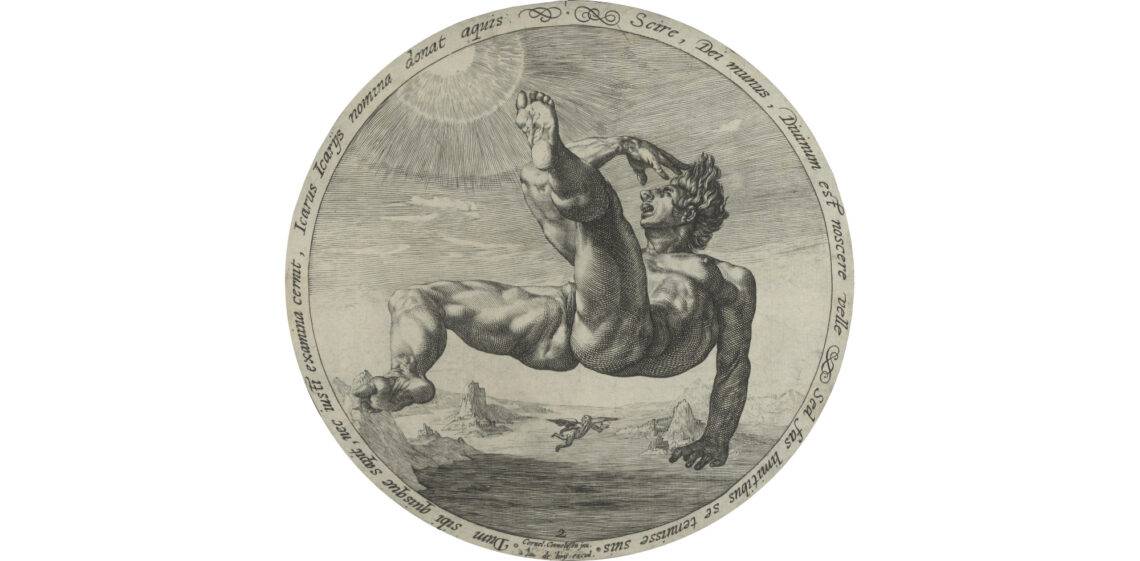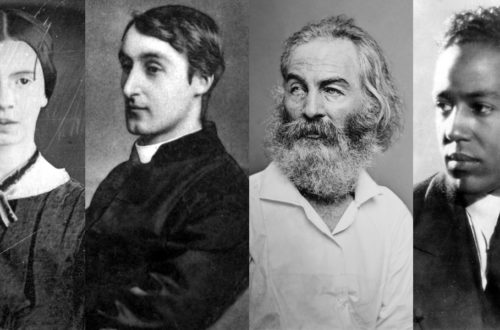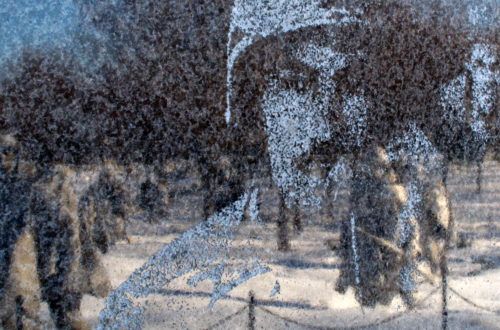by C.A. Adderley
from Ovid’s Metamorphoses (VIII: 183-235):
And Daedalus meanwhile loathed Crete and the time
he spent as an exile and yearned for the clime
of his native land, yet the sea was closed off.
“On land and at sea us old Minos does scoff,
But heaven lies open, thus let us go there!
All things he possesses but holds not the air!”
Thus spoke the old man, turned his mind to new art,
mutated man’s nature, to fly he might start.
Feathers he lay then in order ascending,
Plumes smaller to greater their way they were wending.
And in this direction the feathers declined
just like a pipe’s reeds are in order aligned.
With cord and with wax all the feathers he bound,
and then very gently the wing bent around.
And Icarus, nearby, the laborer’s son,
stood grinning and playing and thinking it fun
to poke at the wax or the feathers to groom
not knowing that these were the cause of his doom.
Then Daedalus finding his work to be done,
Affixed brilliant wings on himself and his son.
He hung in the air with his fluttering quills,
And warned his dear son of the soon-coming ills;
“My Icarus, boy, keep a middling way,
fly high to avoid the sea’s foam and its spray.
And stay lower still than the heavenly flame,
betwixt sea and sky make the path your true aim.
Three stars you must not look upon as you fly,
the cow and the bear and the sword in the sky.”
So follow my lead.” He thus ended his speech,
he looked at the wings which were laid upon each.
From working and warning, his cheeks became damp,
paternal hands trembled whilst wings did he clamp.
And just as they set out, his son he did kiss,
one never repeated, though son would he miss.
In soaring they each felt the wind on their chest
just like a young bird being brought from the nest.
Just so did he urge his young son in this flight,
as, flying himself, he was fighting off fright.
While soaring above, up at the two looked
a fisher, a plowman, a shepherd with crook.
And all who could see up in heavenly height,
thought gods from Olympus had come in their sight.
And after they left behind Cyclades twain,
they passed by the land of Junonian fame.
They saw small Lebinthos, and as it they shunned,
passed island Calymne, with honey fecund.
Then seeing all this the young boy grew quite bold,
flew higher and left his dear father so old.
Thus Icarus soaring too high then delighted,
before long from wings the young boy then alighted.
Consuming sun’s heat then the wings of the son,
began to dissolve as their bonds were undone.
With wax dripping off, beat his arms with a wail,
but lacking his oars the boy never could sail.
With blue sky above and blue water below,
with blue face he cried out to father of woe.
And unhappy father, a father no more,
Cried “Icarus!” while in the air he still soared.
And then on the surface of sea saw a streak
of feathers; a sight that to him was too bleak.
He buried his boy; laid his arts aside thus,
And after his son named the sea “Icarus.”
Click here for the original Latin.

Kit Adderley teaches Latin at Trinity School at River Ridge. He lives in Bloomington, Minnesota with his wife Sadie and their six children. When not teaching or preparing endless meals for his children, Kit enjoys rock climbing, playing board games, and homebrewing.
header image: The Fall of Icarus, Hendrick Goltzius after Cornelis Cornelisz (c. 1588), CCA-SA 4.0, provided by Ghent University Library (adapted)





